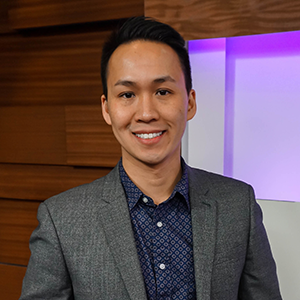
If you are not redirected within 30 seconds, please click here to continue.
Samedi: 10h – 16h HAE

If you are not redirected within 30 seconds, please click here to continue.
If you are not redirected within 30 seconds, please click here to continue.
The Cost of Being a Homeowner

This shouldn’t be a surprise to any Canadian, but real estate prices continue to rise.
At the start of May, the Toronto Real Estate Board reported that April sales were up 18.9% with single-detached homes now costing an average of $1.258 million. Although these numbers are shocking, the demand for real estate is nothing new. What’s interesting though is this headline which recently appeared in The Huffington Post: “Toronto House Prices Are Rising By $550 A Day”.
From a straight math perspective this is technically true, but anything is possible with creative accounting. It’s absolutely ridiculous to take the increase in prices from 2013 to 2016 – now one of the hottest time periods in Toronto real estate history – and use it to estimate prices for the next 10 years. Instead of thinking you’ll have a more than two million-dollar home in 10 years if you buy now, why not focus on the hard numbers that you will have to deal with when you become a homeowner?
Prior to house hunting, it’s well advised to seek the assistance of a mortgage broker so you can find out how much you’ll be pre-approved for. Don’t make the mistake of purchasing a home just to find out later that lenders won’t extend you the full amount you need to close. In addition, you need to consider all of the following costs that you may not have been paying before:
Closing costs
Some new homebuyers are shocked to hear that they need to pay an additional 1% to 4% of their purchase price in closing costs. Mandatory costs include land transfer tax, legal fees and title insurance, but you’ll also need to factor in other costs such as home inspection fees, insurance and the basics like new furniture.
Mortgage interest
Despite the fact that interest rates are at all-time lows, it still costs you money to borrow money. The quicker you pay down your loan, the less you’ll pay in interest, but understand that every mortgage has different terms so you’ll want to know your options before signing.
Property tax
As soon as you become a homeowner, you are required to pay property tax. The amount you pay depends on where you live but it covers services from your city, education costs, and in some cases, transit expansion. You don’t have to pay this when you’re renting, although technically speaking part of your rent goes toward your landlord paying taxes.
Maintenance fees
Condo owners will have to pay maintenance fees that cover services and amenities within their building. The monthly fee depends on the size of your unit and what your building offers, but the general rule is 50 cents per square foot. If you buy a freehold house, you won’t need to pay monthly maintenance fees, but it’s recommended you do set aside some money since repairs and upgrades will eventually be required.
Utilities
Some condo maintenance fees include water, heat (gas bill), and hydro (electric bill), but this isn’t always the case. As a new homeowner, you need to factor in these additional costs that you may not have been paying as a renter.
The Cost of Life
Most lenders determine how much they’ll lend you based on your Total Debt Service (TDS) Ratio. This ratio takes a look at all your debts and compares it to your gross annual income. Lenders don’t generally like this number being more than about 42%. However, lenders also don’t care about how you’re going to afford to have kids, take a vacation or fund your retirement. Be sure to factor in all expenses before bidding on a home that will leave you house poor.
The final word
When you add up your mortgage interest, property tax, maintenance fees and utilities, it might actually be more expensive than your current rent.
The argument that rent is just paying someone else’s mortgage does not really hold up in this set of circumstances. None of this means that you shouldn’t buy a home. Just understand that doing so is a big decision, a huge commitment and it involves a lot of costs that you may have not considered.
Any current cash flow problems are important to address before dreaming about future gains.
Get money-saving tips in your inbox.
Stay on top of personal finance tips from our money experts!










